Easy English: A critical addition to Universal Design for Everyone, Everywhere, Everyday
Presenter: Cathy Basterfield, Independent Consultant
Oral Presentation
This paper will present international literacy data (OECD, 2013, ABS,2013) which identified 44% of the adult Australian population do not have the literacy to manage a range of day to day reading tasks, nor have the skills, knowledge or hardware to access web based written information. The data for computer-based problem solving identified 66% of Australian adults do not have the skills and knowledge to meaningfully engage with web-based materials. These are not marginal groups of people in our community. They are our neighbours, friends, older people, people who may be ill, have a disability or had limited educational opportunities. They are also Aboriginal and Torres Strait Islander people and many people with English as a second language.
These people need to access meaningful written information. Consider leasing a home, negotiating a loan, finding a job, to taking a holiday, learning something new, accessing health services, attending a festival, making a complaint about a built environment and just being part of an inclusive community.
It is 13 years since the United Nations Convention on the Rights of Persons with a Disability (2006) was enacted. There are specific Articles in the Convention which identify access to information. Developing written information in Easy English needs to be considered as an integral part of Universal Design.
This paper will present case studies of organisations who have adopted the use of Easy English as a Universal Design strategy, and the positive outcomes for these organisations and the people they engage with when Easy English has been introduced. The introduction of Easy English assists Everyone, Everywhere, Everyday reducing many hidden barriers and building inclusion. Let’s include Easy English in all Universal Design journeys.
